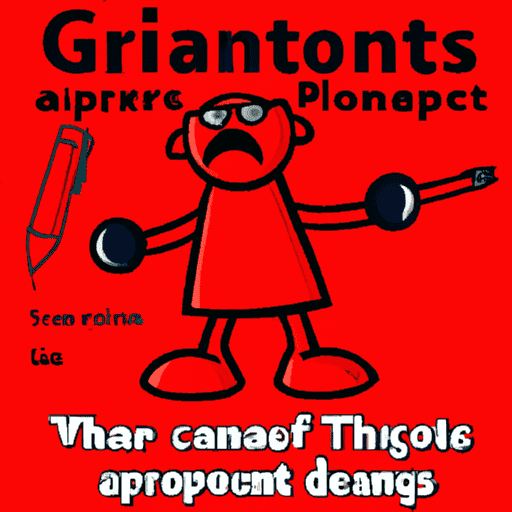In a world where language is constantly evolving and being shaped by societal changes, the proper use of grammar and punctuation has become a topic of debate. One particular punctuation mark that often comes under scrutiny is the apostrophe. Some argue that it is being misused and overused, while others defend its importance in preserving the integrity of the English language. So, does the apostrophe need defending?
The misuse of apostrophes has become a common sight in our daily lives. Signs, menus, and even official documents often display incorrect usage. For example, the sign near the park in my town warning of bee’s (instead of bees) is a clear illustration of this phenomenon. Similarly, the merchant who adds a note to receipts saying “Your awesome” instead of “You’re awesome” is committing a grammatical error that has become alarmingly widespread.
But why is this happening? One reason is the gradual decline of literacy in a world that increasingly relies on visual communication. As we become more post-literate, the importance of grammatical accuracy may diminish for some. The rise of technology and the prevalence of autocorrect also play a role, as people rely on these tools to correct their mistakes, sometimes without fully understanding the correct usage themselves. Additionally, some individuals may intentionally misuse apostrophes in an attempt to sound more intelligent or sophisticated.
However, it is crucial to recognize that language is not static – it is a living entity that changes and adapts over time. The English language has evolved through centuries, incorporating different influences and adopting new words and phrases. The misuse of apostrophes may be a sign of this natural evolution. Just as the grumbles of traditionalists greeted changes from the Old English of Beowulf to the Middle English of Chaucer, so too do modern pedants bemoan the current state of grammar.
Yet, despite these shifts, the apostrophe still holds a significant place in the English language. It serves as a tool to indicate possession, mark contractions, and clarify meaning. Correct usage allows for clear and effective communication. It distinguishes between “its” and “it’s,” “your” and “you’re,” and many other examples where confusion can arise.
Defending the proper use of the apostrophe does not mean clinging to archaic rules or dismissing the natural evolution of language. Instead, it is about preserving the integrity of communication and upholding standards that enhance understanding. It is not a matter of being an elitist grammarian but rather a champion for clarity and precision.
As technology advances and AI becomes more prevalent, it is interesting to note that artificial intelligence is proving to be quite proficient with apostrophes. AI algorithms are designed to detect grammatical errors and suggest corrections, ensuring that written communication adheres to standard conventions. This suggests that even in a world driven by technology, there is still value placed on proper punctuation.
In conclusion, while the misuse of apostrophes may be rampant in our society, it is important to defend their correct usage. Language will continue to evolve, and some changes may be inevitable. However, it is up to us to preserve the fundamental elements of effective communication. The apostrophe plays a vital role in achieving clarity and avoiding confusion. So next time you’re tempted to dismiss the importance of the apostrophe, take a moment to reflect on its significance. After all, it’s not just a mere punctuation mark; it’s an essential tool for accurate and meaningful expression.

